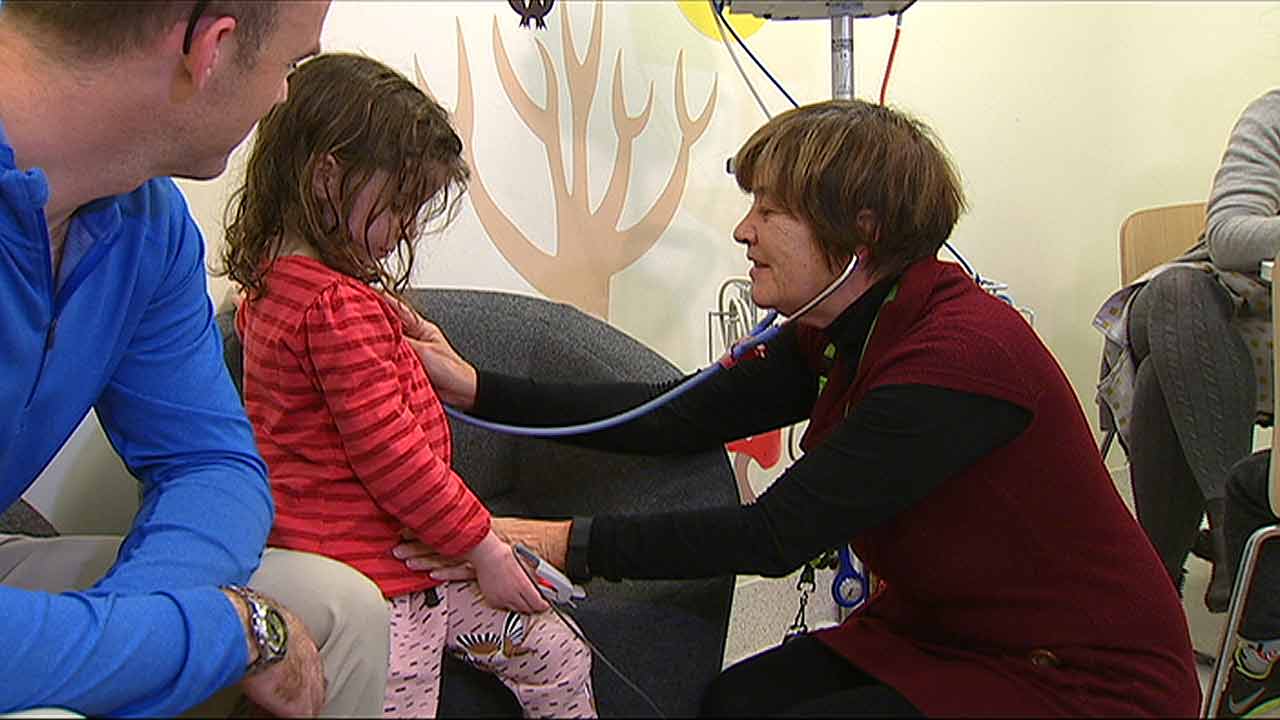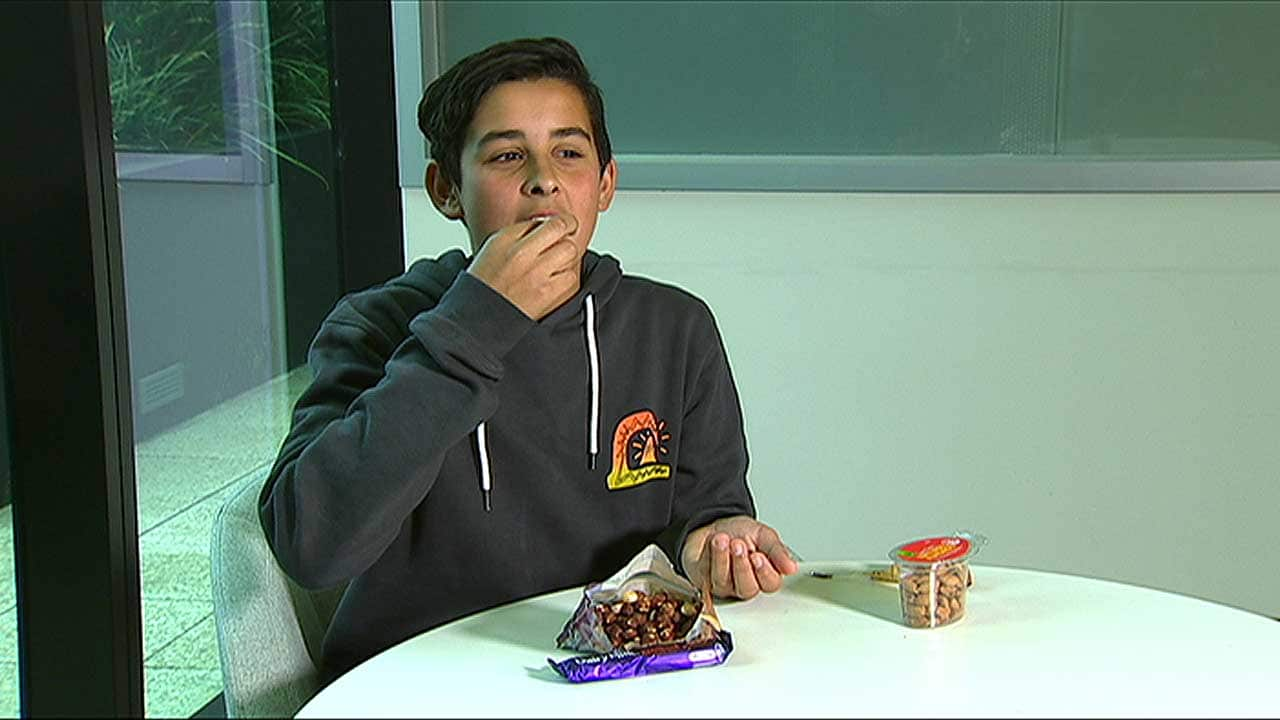Liam Wray was just a toddler when his parents, Chris and Lisa Wray, discovered he had an allergy.
“He had an allergic reaction to pistachios,” Mrs Wray told SBS World News.
“He came out in all hives, and he was finding it quite difficult to breathe.”
From that scary moment, Liam discovered a reaction to other nuts too, and carries an epipen and antihistamines with him everywhere.
“I get really tingly in my throat, like it's very itchy, but it's like an inside, inside your throat itch, you can't actually get rid of it. And then I start to feel sick,” Liam said.

His parents have worked hard to ensure he's independently aware of the risks.
Now, thanks to a landmark study at Melbourne's Murdoch Children's Research Institute (MCRI), the 14-year-old has had some happy news.
“I used to be allergic to hazelnuts and almonds, but I've grown out of being allergic to them, which is good, cos I can have Nutella and stuff now," says Liam.
Transient v persistent food allergies
The 'School Nuts' study assessed 15 food allergies in ten-thousand children aged 10 to 14, to find out the extent of allergies, and the cause and scale of reactions.
Lead researcher, pediatric allergist, Professor Katie Allen, said her team discovered that one in 20 students had an allergic reaction during food challenges.
“There's what we call the transient food allergies, and the persistent food allergies. So the transient food allergies are the early life ones, like cow’s milk and egg allergy, they're more likely to be grown out of, we know that 80 per cent of them will grow out of it by age five,” Professor Allen told SBS World News.
“But this [the study] has now confirmed what we thought clinically, that children with nut allergy, are more likely to have persistent problems.”

Professor Allen said it highlighted the importance of patients being re-tested as they advance into secondary school and beyond, to better understand the severity of their condition.
“Children with nut allergy are more likely to have lifelong allergies, they're also more likely to have anaphylaxis, and unfortunately the fatalities are more likely to be associated with nut anaphylaxis.”
As researchers work towards a treatment, the benefits of testing could be immediate.
Just like for Liam Wray, whose allergy, and routine, has changed.
“If I didn't get the testing done, I wouldn't have been able to have almonds or hazelnuts and I wouldn't have known what they're like, so it's good to know I can have, some type of nut.”

